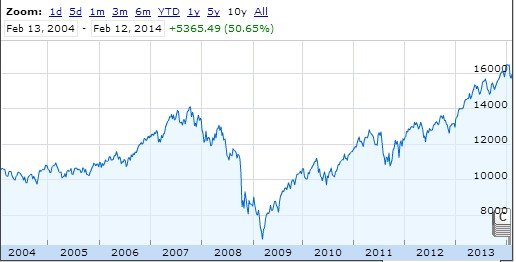Not everyone is fully invested at all times. As a matter of fact, it makes sense to have available, uncommitted cash to take advantage of buying opportunities. And some people may actually WORK and get PAID routinely for more cash.
Exactly. Plus, even with routine rebalancing, you're going to end up with some money sitting on the sidelines in something conservative like a money market account or cash. Back in 2007 when the market was riding high, I sold off a bit. And when 2008/early 2009 hit, I started buying back in again.
I also lucked out a bit, too. In 2008, as the market was crashing, a lot of banks were freezing HELOC's, not letting their borrowers tap into any more equity even if they were below their limit. I called my bank to see if they were going to do that as well. They said no, but I ended up maxing my HELOC out, just in case. While I was in no danger of losing my job, I wanted easy access to the money in case anything came up. Plus, with the way interest rates were dropping, it wasn't costing much to pull it out.
While prices were cheap, I bought some stocks, padded some mutual fund accounts, etc. Got some pretty good bargains. For example, Nordstrom's for around $10/share. I bought it mainly because it was paying a 6% dividend at the time, something you weren't going to get from any bank. Well, now it's trading for around $58 per share. And the dividend is now $1.20 per year rather than 60 cents. That's only about a 2% yield on the current share price, but about 12% on what I initially paid!
I also bought a bunch of Cedar Fair, around $7-10 per share. And again, initially for the dividend, which was $1/share at the time. Ironically, they cut the dividend soon after I bought, but then the price went up. Currently around $49-50/share, and the dividend is now $2.80 per share.
As for this volatility we've had so far this year? Well, as of last night, my total is down about 0.033%. Pretty negligible. But even there, I've had some stocks/funds that have gained notably, some that have fallen off, so it's been enough to make me rebalance a bit.


